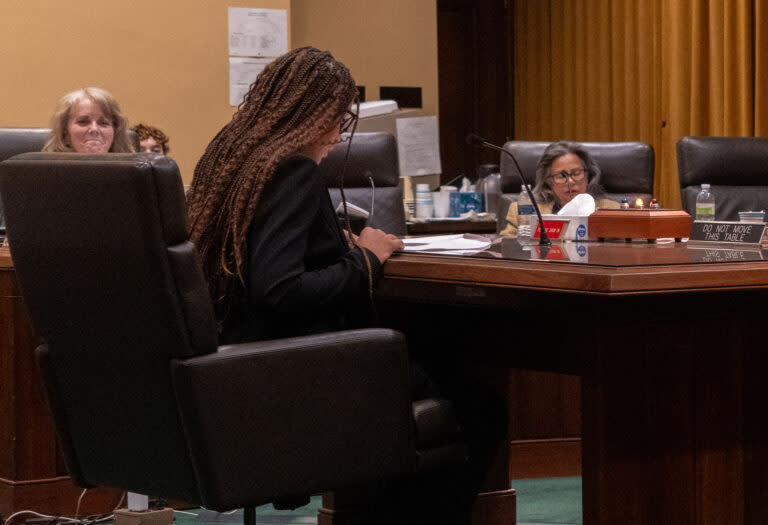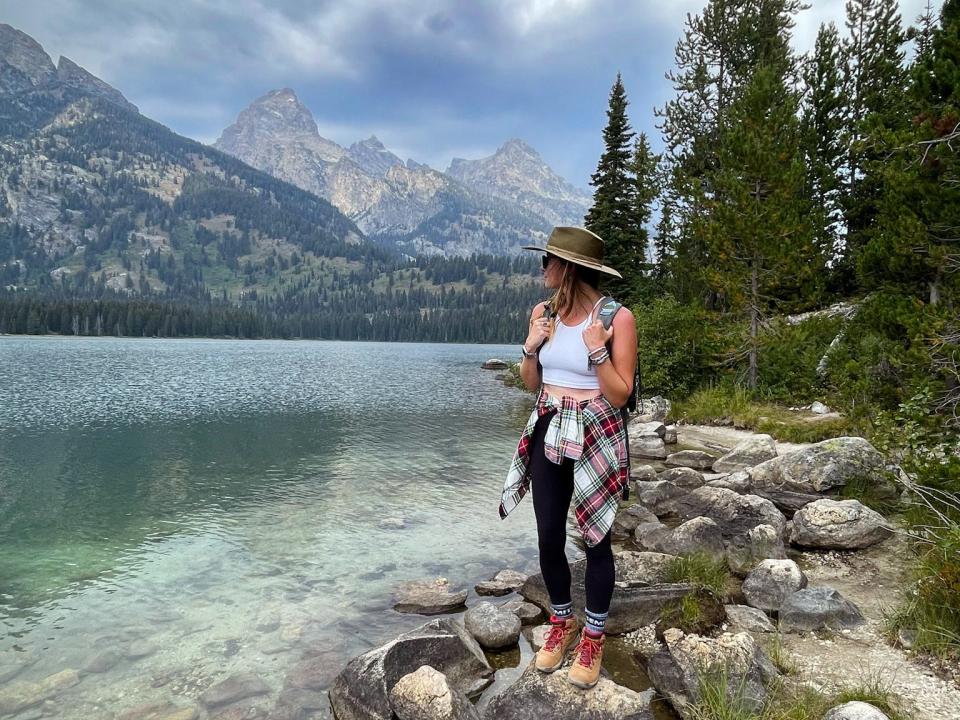Aging: We all do it. In fact, you’re doing it right now. It’s a lifelong process, but when a certain number of candles appear on the cake — for some, maybe it’s 60, while for others, 70 — a feeling of dread may start to creep in. Nearly half of Americans fear getting older, according to a recent Forbes survey. But there’s some comforting news: Research and the survey show that the older we get, the less we fear aging. And increasingly, experts are focusing on extending people’s “health span” — the years of a healthy, high-quality life — rather than just their lifespan.
The secrets to aging well, experts tell Yahoo Life, don’t necessarily require a strict diet, a hard-core exercise program or expensive medical care. In fact, it’s easier than you might think. Here’s how experts on aging have learned to age well.
1. Don’t expect the worst
Most diseases, including cancers and heart disease, become more common and more severe with age. But it’s easy to mistake that for meaning that most older people are unwell. In fact, statistically, that’s not the case. More than three-quarters of Americans age 65 and older reported themselves as being in excellent, very good or good health in 2022, according to the Centers for Disease Control and Prevention’s latest data.
“People conflate aging with disease and pain, and those are separate things,” Ellen Langer, a professor of psychology at Harvard University, where she’s referred to as “the mother of mindfulness,” tells Yahoo Life. And that conflation, she says, can impact your mentality. “If you think you’re going to die soon, every ache and pain is attributed to that,” says Langer. “But if you think you’re going to live a lot longer, you find other reasons to attribute” those aches and pains to.
Instead, Langer advises taking a mindful approach, which means “you make a plan, and you just go about living and should you come down with something, you are better able to deal with it.”
2. Do stay active — but do it in ways you enjoy
“I do things that I really enjoy because I think that life’s too short to spend doing things you don’t enjoy,” Katharine Esty, a social psychologist, tells Yahoo Life. Esty, who’s approaching her 90th birthday, attends three weekly classes: a Zumba class — to “very fun and bouncy Latin music,” she says — another dance class and a “body motion and stretch” class. Esty also periodically goes to a strength training class. She knows that staying active is good for her body and mind, but it’s equally important to her that “all my classes are built into a fun and nice atmosphere,” Esty says.
3. Do find your purpose
If you’re still stuck in the daily grind of work, you may be looking ahead to the expansive free time of retirement, but, experts say, aging well doesn’t mean doing nothing. “The key to aging well is to always have a challenge in front of you; there’s a lot of data that supports this,” Kate de Medeiros, a professor of gerontology at Concordia University in Montreal, tells Yahoo Life. Research suggests that those who have a purpose are also more motivated to develop or maintain healthy habits that help to extend both lifespan and health span. “People think about retirement and relaxing, but it’s probably not a good thing to do,” says de Medeiros. “Without those meaningful anchors in time, time just becomes this kind of void, but it’s not just about being busy; it’s about having things that matter and people being able to invest in themselves that’s really key.”
She’s not alone in this thinking. Esty wrote her book “Eightysomethings” in part to cope with her anxiety about her own then upcoming 80th birthday. “The people were so inspiring, and having the project inspired me,” she says. “I think to age well, you need to have a purpose, some way that you’re contributing to the world.”
4. Don’t be afraid of change
“Aging well is never about avoiding setbacks, disappointments or losses,” says Esty. “This is aging, so it’s really about keeping a positive attitude.” That positive attitude is the difference between dreading aging and aging well, and, Esty says, it improves her ability to cope with the losses and changes that are inevitable. “You have to acknowledge what you’re feeling, which we’re not that great at as a society,” she says. “Aging does realistically bring a lot of losses — of people we love, of capabilities — but learning how to manage those losses and how to mourn effectively … can enable you to go on and have a good life.”
Take moving, for example. “People want to age in their homes, but people [often downsize] and go to smaller communities,” notes Esty. Although that change can be hard, she looks at it this way: “I think that’s good because you can meet new people and form new friendships.”
5. Do stay social and curious
Keeping your mind engaged and your social life active are key, experts say. “I think it’s really important to keep learning things,” Esty says. “I do that mostly through books and conversations with people; I have dinner groups and we discuss things.” She also lives in a community with classes, lectures and group activities like birding. She acknowledges that it’s harder for people living on their own but suggests finding classes at local community or senior centers or looking into free courses offered by colleges. De Medeiros, for example, recently started taking French classes to continue her learning.
Contributing to your community also provides a sense of purpose and connection, says Esty. “People can volunteer at any age,” she says. But, as she points out, it’s not just about doing the activities, but also having a curious mindset. Esty says she maintains “an attitude of openness to new information.”
6. Don’t believe negative stereotypes about age
Whether they’re coming from ad campaigns or her own internal monologue, de Medeiros makes a point of avoiding and counteracting negative stereotypes about age. “It’s important to be aware of and try to stay away from media campaigns that try to convince you that aging is bad … [because] it’s hard when you’re constantly told you’re devalued and not what you were,” she says. “Don’t practice self-ageism; it drives me crazy when someone says they’re having a ‘senior moment.’”
Langer agrees, and suggests not focusing on your age. “I don’t pursue aging well — I just live,” she says. “Age is not a relevant dimension until I’m with friends who start complaining about being old … I don’t have a sense of how old I am; if there’s something I can’t do, I try to do it differently or I figure it out.”
She isn’t alone in not feeling her age. One study found that, on average, adults over 40 feel about 20% younger than they are. And our sense of when “old age” begins is getting later and later, as the population ages and people live longer. But extending life expectancy isn’t the point when it comes to aging well, Langer says. “Rather than spending time trying to add more years to your life, we should spend more time trying to add life to your years,” she says, noting that mindfulness research suggests doing that can end up adding years to your life.
Signup bonus from





